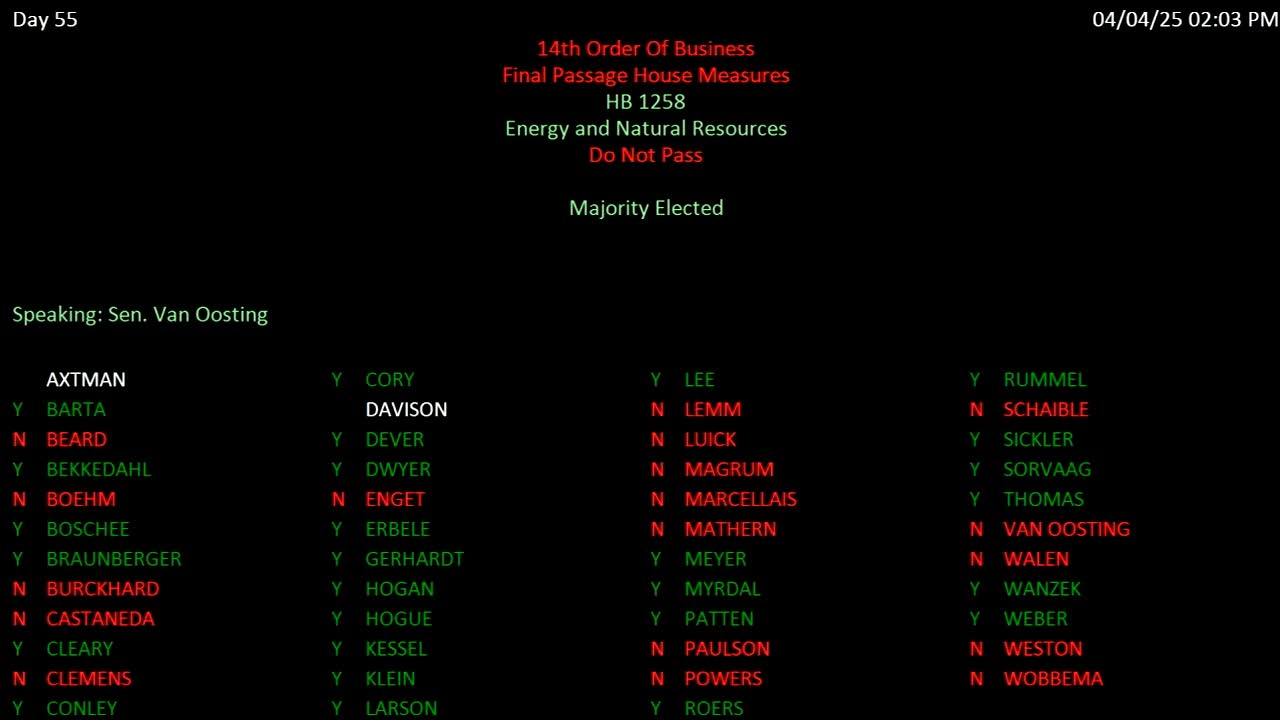Senate approves owner‑liability measure for vehicles used in police pursuits; emergency clause fails
Get AI-powered insights, summaries, and transcripts
Subscribe
Summary
The North Dakota Senate passed House Bill 12‑29 29–16, creating a civil‑penalty mechanism and investigative pathway for law enforcement when a vehicle flees during a traffic stop; the emergency clause failed.
Bismarck — The North Dakota Senate approved House Bill 12‑29 by a 29–16 roll call on Friday, creating a civil penalty regime and an investigative tool for law enforcement when a motor vehicle flees from a peace officer. The bill passed without criminal penalties, and the Senate later rejected the emergency clause.
Under HB 12‑29, when officers obtain a license plate for a fleeing vehicle, they may stop pursuit and follow up by locating the registered owner. The owner may face a civil fine — $100 for a first offense and $500 for a subsequent offense — unless exceptions apply. The bill does not add criminal charges, does not add points to the owner’s driving record, and allows citations to be issued within four days of the incident. Exceptions include cases in which the actual driver is charged, the vehicle was reported stolen, the owner cooperates with investigators, or the owner provides evidence they were not driving at the time.
Supporters, including Senator Rummel, said the measure offers a practical tool to reduce dangerous high‑speed pursuits by allowing officers to end chases once they have a plate and pursue identification later. Law enforcement testimony to the Transportation Committee and floor remarks described a growing problem of fleeing vehicles and the public‑safety cost of high‑speed chases.
Opponents raised constitutional concerns about presuming owner responsibility and argued the proposal shifts burdens onto vehicle owners and could impinge on the presumption of innocence and the right to remain silent. Senators including Beard, Meerdahl and Braunberger urged caution, saying the approach may not withstand court scrutiny and risks penalizing owners whose vehicles were used without their knowledge.
Floor debate included questions about effects on insurance, how the law would treat multiple owners or leased vehicles, and whether the civil‑penalty mechanism is analogous to existing owner‑liability traffic provisions such as parking citations. Senator Rummel and other supporters pointed to statutory exceptions and law enforcement discretion as protections.
Final roll call on HB 12‑29 was 29 ayes, 16 nays, with 2 absent and not voting. The Senate voted that the bill’s emergency clause failed. The bill now continues through the legislative process as amended.
